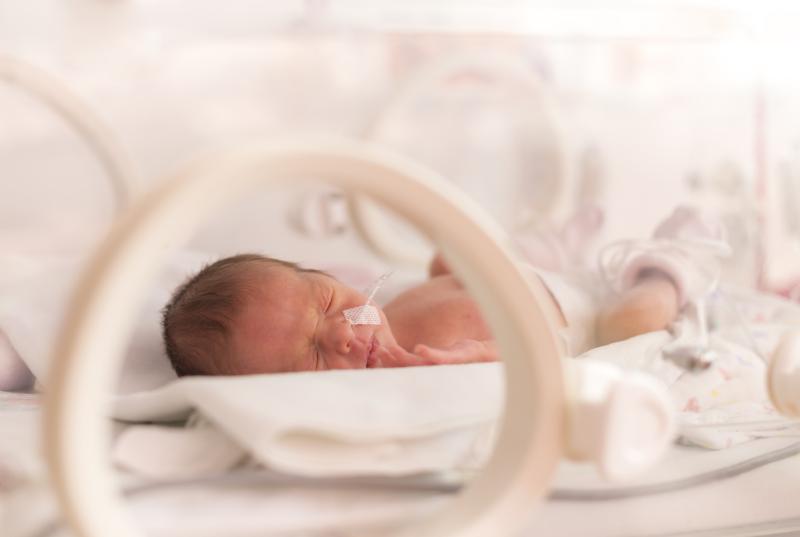 The Kangaroo Mother Care (KMC) idea, which originated amid grinding poverty, may be a cheaper and better option than incubators in saving premature babies.
The Kangaroo Mother Care (KMC) idea, which originated amid grinding poverty, may be a cheaper and better option than incubators in saving premature babies.Early-onset preeclampsia during pregnancy appears to raise offspring blood pressure throughout the neonatal period, a recent study has shown.
The prospective case-control study included 106 neonates (mean gestational age, 32.2±2.0 weeks) born to mothers with early-onset preeclampsia and 106 infants (mean gestational age, 32.2±2.0 weeks) of normotensive mothers. Serial blood pressure measurements were collected upon admission, daily over the first postnatal week, and weekly thereafter up until the fourth week of life.
Upon admission, systolic (SBP), diastolic (DBP) and mean (MBP) blood pressure measurements were comparable between the preeclampsia and control infant groups. By the first day of life, researchers started to observe slight elevations in all three parameters in those born to mothers with preeclampsia.
These differences became statistically significant by the second day of life. SBP (p=0.021), DBP (p=0.007) and MBP (p=0.005) were all elevated in infants of mothers with early-onset preeclampsia. This trend persisted until the final measurements collected on the fourth week of life. The only exception was day of life 6, when SBP became similar between groups (p=0.162).
Repeated-measures analysis of variance, adjusted for sex, birth weight and gestational age, confirmed that preeclampsia during pregnancy was a significant predictor of elevated SBP, DBP and MBP during the offspring’s early life (p<0.001 for all).
“Further studies, with a longitudinal design and long-term follow-up, are needed to determine whether exposure to early-onset preeclampsia represents a novel cardiovascular risk factor for offspring,” the researchers said.